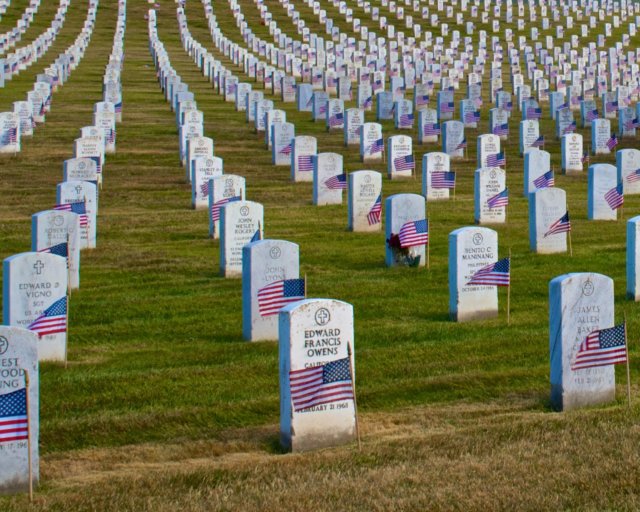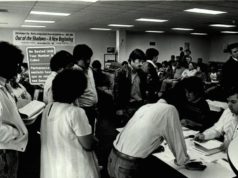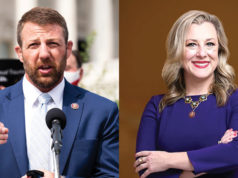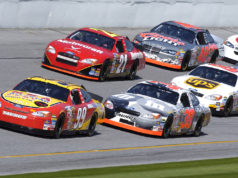
Last week, Sen. Paul Scott threatened the Thunder in his hometown newspaper. Worried over the national anthem, Scott (R-Duncan) told the Duncan Banner he would consider punishing the franchise. In his interview, he justified his political opinion by qualifying his American-ness. To him, an American is someone who stands for the anthem:
I’m an American. Hey, I am a red-blooded, true to the core, American born-and-bred guy. And I’ve had great uncles, family, that have fought in military (sic) that have been in wars and I just honor this country and respect this country. I mean, just, to the ultimate. And I, personally, like the flag, yes it’s a piece of material, okay? But that flag represents our country and the men who have fought and died, and all of our freedoms.
What surprised me about Scott’s defense was how he mentioned his veteran family members. Not so much that he did it — I see people shamelessly using veterans to defend their politics all the time — but this is the first time I have seen someone use such a distant relation as a great uncle. Bravo, Senator Scott.
People are quick to use the term “veterans fought and died” to justify their personal beliefs. As an Iraq veteran myself, I am tired of seeing people who never served use veterans as pawns in their agenda.
Veterans aren’t talking points
Last month, President Donald Trump tweeted, “Courageous Patriots have fought and died for our great American Flag — we MUST honor and respect it!” Last week, Sean Hannity told viewers, “Americans are sick and tired of seeing these players … not honoring those brave men and women that fought, bled and died.” The irony is not lost on me that neither of these people served in the military. I joined for many reasons. None of them were so people could talk about me like I do not have any agency.
I could talk about how the kneeling protest in the NFL has nothing to do with veterans, but that is beside the point. If you want to support veterans, do not first use their experiences — the battles they fought, the highs they enjoyed, the hardships they suffered and the friends they lost — as talking points in trivial political arguments.
Second, it does not matter what my opinion as a veteran is on the NFL protest. My experience does not make me any more qualified to talk about our country’s traditions. Veterans are not the gatekeepers to patriotism.
Veterans are good at a lot of things. We are good at working in teams and good at performing under pressure. We are great at pointing out inaccuracies in war movies. We are not any better than any other American, however, at deciding what is acceptable patriotism.
Being anti-war is also being pro-veteran
Many people serve their country and their community. The list is almost endless. Still, we do not brag enough about having a cousin who is a teacher, an EMT or an AmeriCorps volunteer. We rarely thank them for their service in the street. Why?
Part of it is because the military is the most respected institution in America. When hurricanes devastated Puerto Rico this summer, the country looked to the military. Even when the military is subject to scandals — from sexual harassment to war crimes — Americans tend to overlook them.
Yet, the ugly fact is that the civilian public only support veterans when it is convenient to them. When our name can be invoked to give weight to political opinions, people are proud to support the military. When polled, however, Americans have no problem sending them off to fight and die in new, hypothetical wars. When the president announces new troop deployments to a 16-year-old war with no end in sight, I hear little concern for those who must fight in it. No one is talking about it, let alone talking about ending it. In the 2016 presidential debates, the candidates mentioned Afghanistan only once in passing.
Not your barometer
Veterans are not better Americans than anyone else. I am not a better American than you because I am a veteran, nor is Paul Scott a better American because his great-uncle was one. So, support veterans or do not. That is your right as a free citizen. But if you say you support veterans, please do not only talk about us to co-opt us into your politics. Refrain from using military service as a patriotism barometer.





















